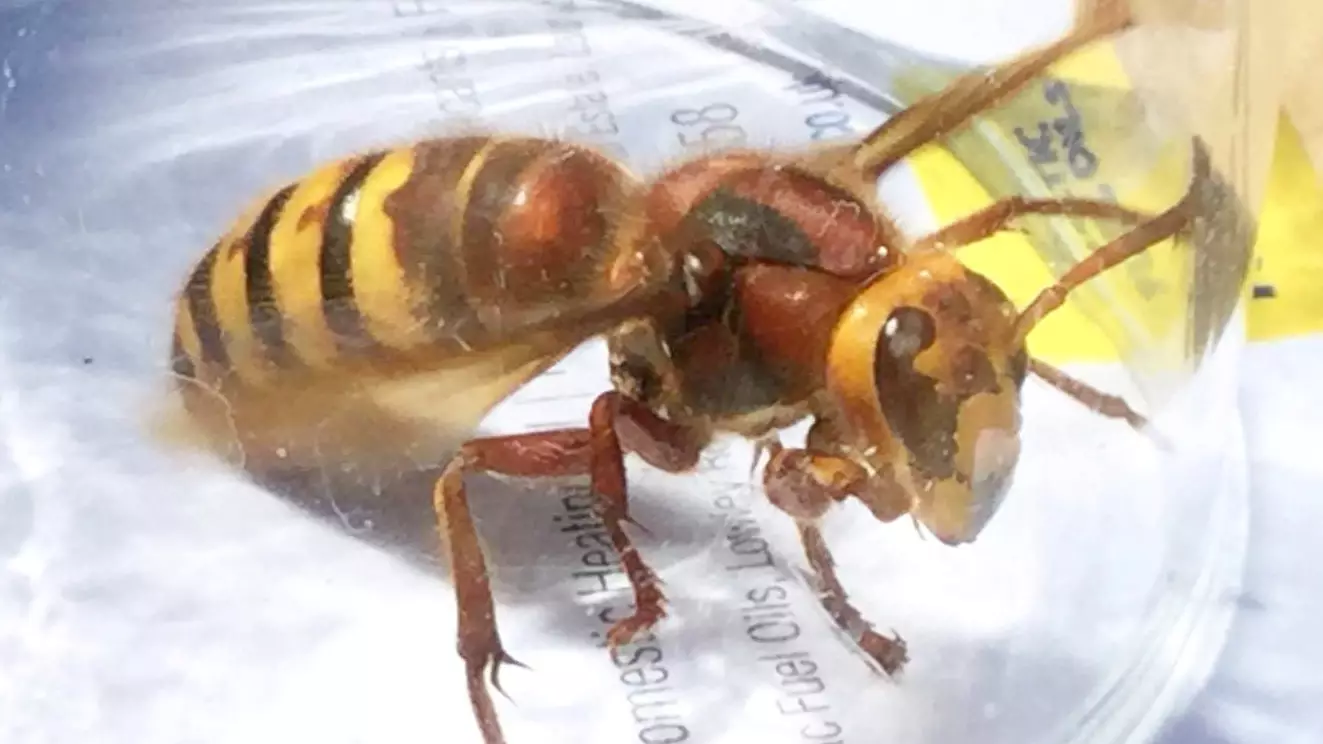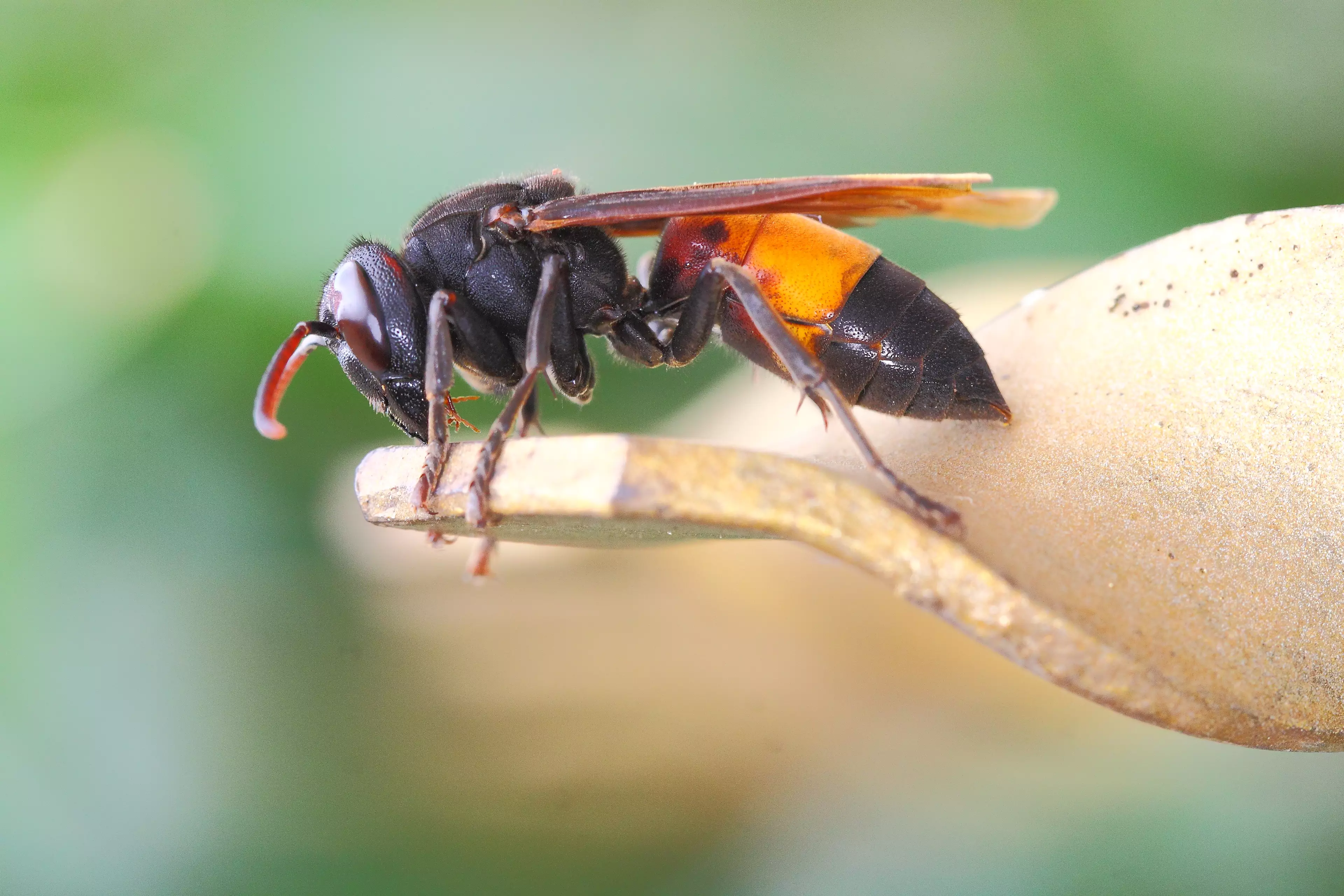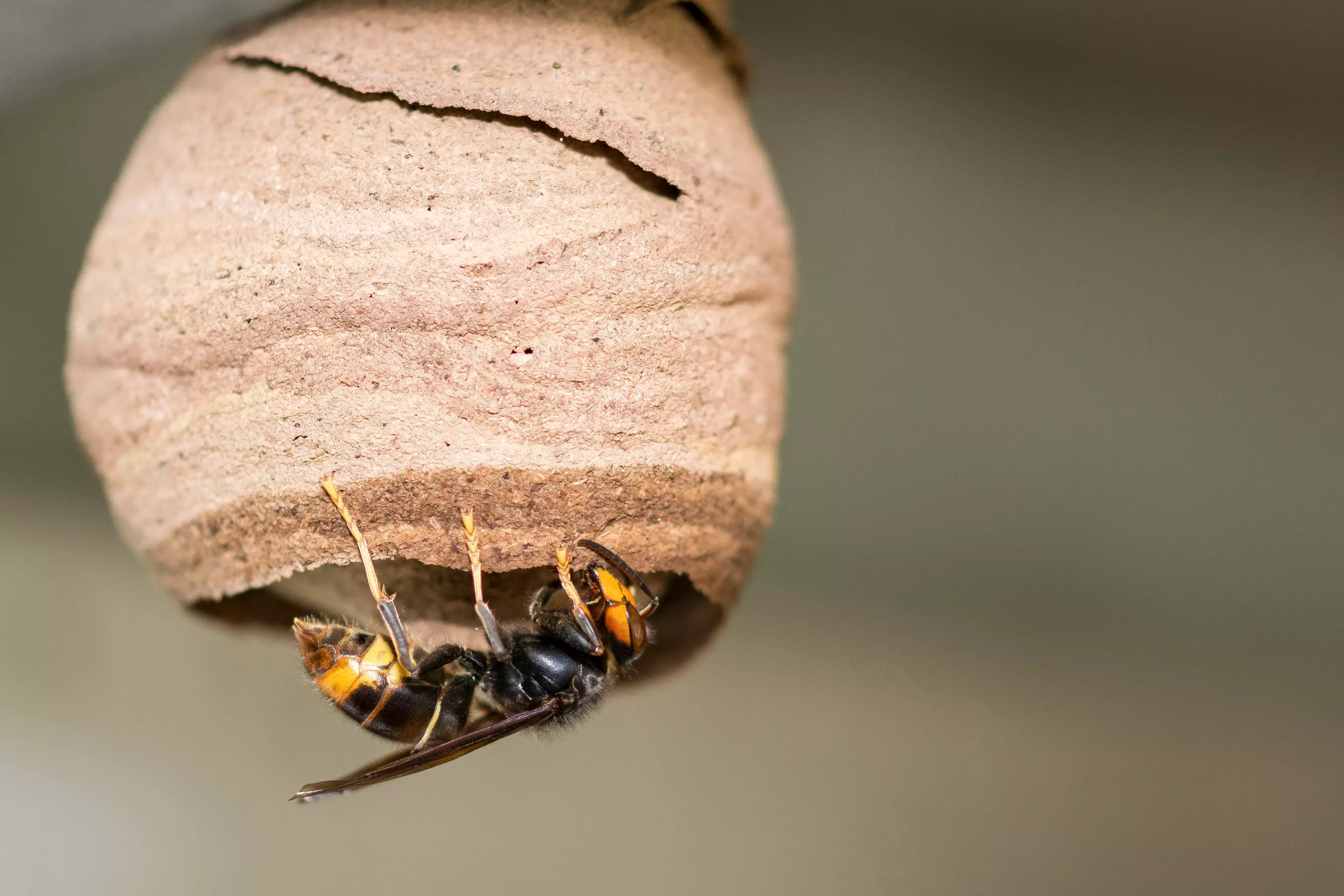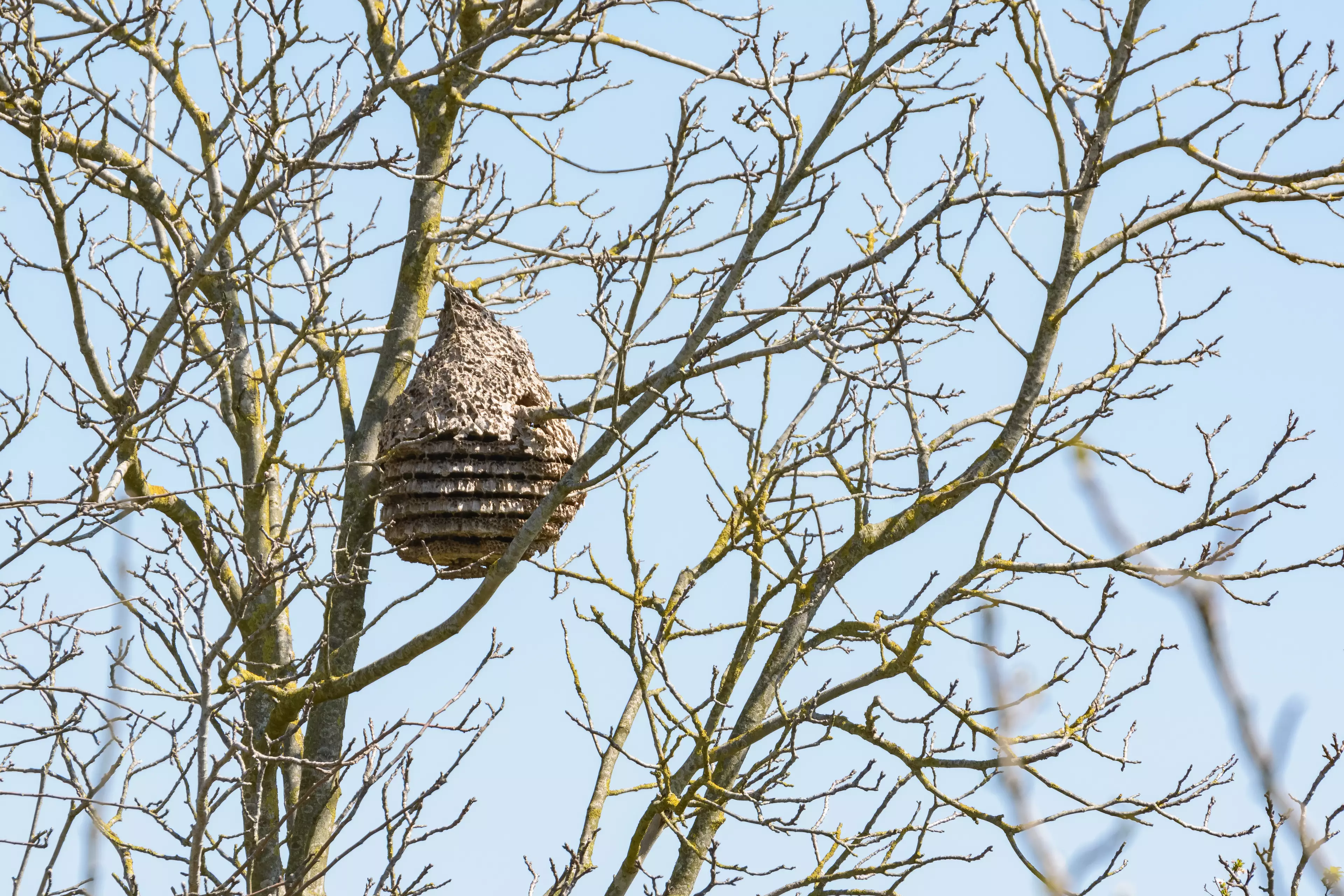
We hate to break it to you but according to experts, killer Asian Hornets will invade Britain this summer.
Eek!
Strong winds from mainland Europe has led to the species finding their way over to our shores. Experts are worried that this could lead to a summer-long battle to stop the spread of insects that could destroy the UK's native bee population.

Jersey in the Channel Islands is seen as the frontline in the fight against the deadly insects. The number of killer queens found on the Channel Islands has tripled during the past week.
Advert
Jersey islanders have been asked to be on the lookout for Asian hornets and their nests and to report sightings.
The Asian Hornet species began to spread through Europe in 2004 after arriving in the south of France inside a freight shop. They were first spotted in the British Isles in late 2016.
And after years of establishing themselves on Jersey and Guernsey, the battleground shifted last year to southern England.

Alastair Christie, who leads the team tracking the invasive species, said that the number of queens found so far this year had risen from nine to 27 in the past week - with the first nest expected 'any day now'.
Advert
The Asian Hornets are able to kill eat 50 bees in one day and can kill people who have an allergy with one sting. Hornets are a type of wasp that can sting repeatedly, unlike honey bees, because their stingers are not pulled out of their body.
The emerging Hornet queens had been discovered in the east of the island, with 11 being caught by traps and the remaining 16 reported by members of the public, he explained.

The latest finds have come as a big surprise to authorities who thought they were getting on top of the hornet threat.
Advert
"We felt, based on evidence, that we had done an excellent job of mopping up the hornet nests in Jersey," Christie said.
"We have had three weeks of easterly winds and we feel that the majority of queens that we have found so far are blow-ins from France."
He added that it was unclear how many hornets were being missed, but that the team would have a better picture once the tracking phase begins with the emergence of 'worker' hornets in the summer.
"I remain optimistic but these easterly winds and lots of hornets from France don't help one bit."
Featured Image Credit: SWNSTopics: Environment, Life, Real Life, Animals